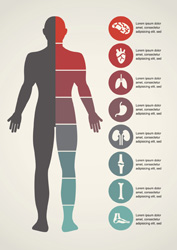Evaluating disease management methods
The EU-funded 'Developing and validating disease management evaluation methods for European health care systems' (DISMEVAL) project aimed to develop further the methodological base for the evaluation of disease management, and to provide evidence-based recommendations on approaches that may be most useful in European settings. DISMEVAL was a collaboration involving seven European countries with expertise in evaluation science, chronic care, DM design and operations, epidemiology, economics and health policy. Significant milestones were achieved within the scope of the project, culminating in two reports on recommendations for evidence-based DM evaluation. Reports cover areas of DM ranging from reviewing approaches in place across Europe, to method selection and testing of different evaluation approaches to identifying examples of best practice and lessons learned. These reports are available on the project(opens in new window) website. Researchers documented wide variation in the scope and nature of approaches to chronic DM across 13 European countries. The main challenges to a strategic health system response to chronic disease were fragmentation within and between sectors in health and social care. There was a focus on management of acute disease but little strategic attempt to integrate disease prevention with other components along the care continuum. National level policies to enhance coordination and integration were often disconnected from what could realistically be implemented in practice at regional or local level. Using existing data from chronic DM programmes currently in practice in different countries the researchers then tested different methods to evaluate their performance. Techniques tested included baseline–difference adjustment, observational study designs and statistical matching as practical alternatives where experimental studies are not possible. The results point to the necessity for better data collection and registration practices, as well as strategic frameworks that allow for better coordination of services. Research results were disseminated widely via the project website, peer-reviewed publications, presentations, workshops and lectures, as well as at national and international conferences. Outputs from the DISMEVAL project include recommendations for the use of evaluation methods for DM programmes. The reports produced by project members could have far-reaching implications for evidence-based DM policy and disease intervention in Europe.







